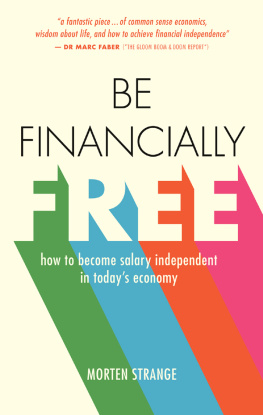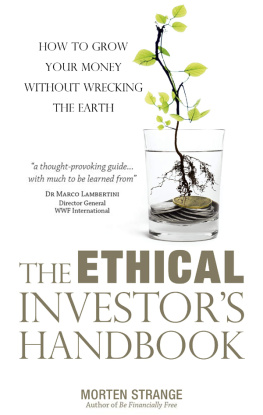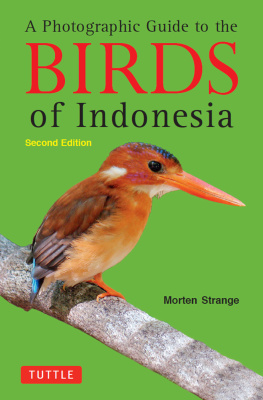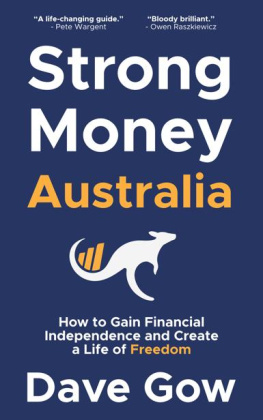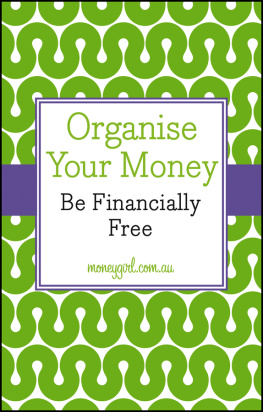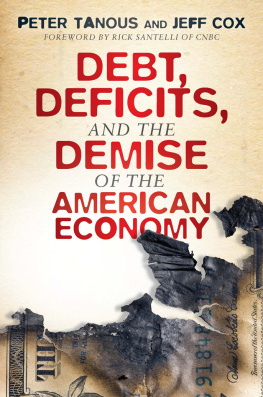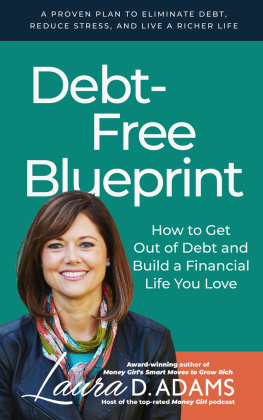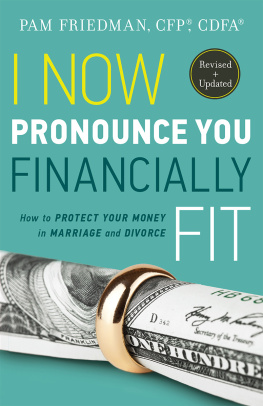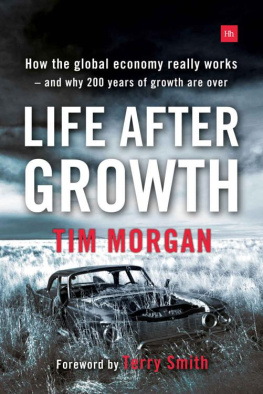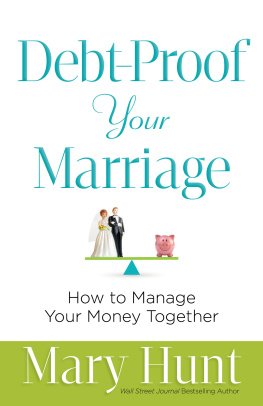Be Financially Free

2016 Morten Strange and Marshall Cavendish International (Asia) Pte Ltd
Published in 2016 by Marshall Cavendish Business
An imprint of Marshall Cavendish International
1 New Industrial Road, Singapore 536196
All rights reserved
No part of this publication may be reproduced, stored in a retrieval system or transmitted, in any form or by any means, electronic, mechanical, photocopying, recording or otherwise, without the prior permission of the copyright owner. Requests for permission should be addressed to the Publisher, Marshall Cavendish International (Asia) Private Limited, 1 New Industrial Road, Singapore 536196. Tel: (65)6213 9300. Email:
The publisher makes no representation or warranties with respect to the contents of this book, and specifically disclaims any implied warranties or merchantability or fitness for any particular purpose, and shall in no event be liable for any loss of profit or any other commercial damage, including but not limited to special, incidental, consequential, or other damages.
Other Marshall Cavendish Offices:
Marshall Cavendish Corporation. 99 White Plains Road, Tarrytown NY 105919001, USA Marshall Cavendish International (Thailand) Co Ltd. 253 Asoke, 12th Flr, Sukhumvit 21 Road, Klongtoey Nua, Wattana, Bangkok 10110, Thailand Marshall Cavendish (Malaysia) Sdn Bhd, Times Subang, Lot 46, Subang Hi-Tech Industrial Park, Batu Tiga, 40000 Shah Alam, Selangor Darul Ehsan, Malaysia.
Marshall Cavendish is a trademark of Times Publishing Limited
National Library Board, Singapore Cataloguing-in-Publication Data:
Name(s): Strange, Morten.
Title: Be financially free : how to become salary independent in todays economy / Morten Strange.
Description: Singapore : Marshall Cavendish Business, 2016.
Identifier(s): OCN 946967988 | eISBN: 978 981 4751 78 0
Subject(s): LCSH: Finance, Personal. | Investments.
Classification: DDC 332.024dc23
Printed in Singapore by NPE Print Communications Pte Ltd
Contents
Preface
If theres a book you really want to read, but it hasnt been written yet, then you must write it.
TONI MORRISON
A few years ago I attended a lecture at the Singapore Botanic Gardens by Ashleigh Seow about tiger conservation in Malaysia. Ashleigh has a university degree from Australia in politics and economics, but he has reinvented himself as a naturalist. At the event he called himself a citizen scientist. He said that science was too important to be left to the scientists; we citizens had to participate.
I thought of that. I was a naturalist at the time; I published nature books. But I was getting more and more interested in finance and economics. So now, like Ashleigh, except the other way around, I have reinvented myself. Now I consider myself a citizen economist. Economics and finance is too important a subject to be left to the professionals.
I wrote this book for two reasons: To share with my friends and with the public in general my experience in finance, and to say to you, You can do it too! You can set yourself free free from consumerism and financial worries, free to do what you really want. But it wont happen automatically. You have to understand how to do it and use the tools at your disposal correctly. In this book I show you how to do that. The final choice, how you want to prioritise, is up to you.
The other reason for the book is: I want to share the insights I have gained about our current economic situation. My experience with economics and social affairs goes back some 50 years I actually vividly remember the oil crisis in 1973 and the stock market crash in 1987. Living through these events is different from studying them in a business course textbook (I have crammed a few of those too). Together with my interest in natural resources and the environment, I have come to the conclusion that all is not as it appears in the economy of today.
We are reaching some limits, and that is why I devote the longest chapter in the book, and 11 carefully. Armed with this new insight, you will be better equipped to protect yourself against the limits we are facing, to position yourself financially, and to gain your freedom from consumerism and economic worries.
Some practical matters: The monetary references here are mainly in $, meaning US$ or USD. Where I refer to Singapore dollars, I will make that clear with S$ or SGD. Currently US$1 is about S$1.40. I dont cite every single statement I make; this is not an academic work and much of what I write is easily checked on the internet. For specific possibly contested assertions, I use a basic reference to the source. I also dont list every single person or book I refer to, so as not to clutter the material, but I do explain who and what most of them are, so that you can go on and explore in more detail if you like.
Before printing I showed the manuscript to a few people to get their input and their reaction I thank them all, especially Dr Marc Faber, who allowed me to use his comments in the book.
On the television show MythBusters, two dudes in northern California test the validity of various myths suggested by the public. The myths are either busted, plausible or confirmed.
Here are some economic myths that we often hear:
You can make money by trading financial futures.
Higher GDP is good for everyone.
Population growth is positive for society.
Electric cars are good for the environment.
We will get back to economic growth soon.
All these statements are repeated incessantly by mainstream economists and financial commentators. But I will bust these myths. Sometimes it takes an outsider to see things clearly, a citizen economist. I will show you that financial futures and options trading is zero-sum, and only the trading platform is sure to make money; higher GDP is sometimes bad; population increase stifles development; electric cars are bad for the environment; and most importantly, economic growth as we know it cannot go on forever.
But there is one myth that I will confirm: You can make your money grow if you invest in a good company of honest and hardworking people who provide a competitive product or service that others are willing to pay for. And by controlling your spending at the same time, you can soon be free forever. I will show you how to get there.
Good luck!
Morten Strange
Singapore
April 2016
Retire at 30?
There must be more to life than having everything!
MAURICE SENDAK
A lucky break
When I was 25 years old I lived in Aberdeen, Scotland. The Granite City, they called it many of the old buildings downtown were built out of large solid stone blocks. People spoke with a funny accent, but they were always nice and I liked it there. I bought a small apartment on Jamaica Street. It was on the top floor and had slanting ceilings near the outer walls.
That was in 1978. I didnt spend that much time in the apartment, though. I worked offshore on the oil rigs and platforms in the North Sea. In between jobs I was at the office and workshop to prepare for the next offshore assignment, and to train on all the new equipment we had. We collected and analysed down-hole data from both exploration and production wells. Each job was usually on a new location, so I travelled a lot and met a lot of different people during that period.
On one of the rigs I chatted with an American guy, who was a few years older than me. He told me he had just been through a divorce and was planning to marry again. So I tried to be a bit supportive and said: They say the second marriage is usually better. He replied: Dont believe it that was my second wife I just divorced. Anyway, he planned to retire before he was 30. I thought that sounded pretty cool. I loved my job, and I really had nothing better to do. But just the thought of it the power of being financial independent at 30 it stayed on my mind.
Next page
